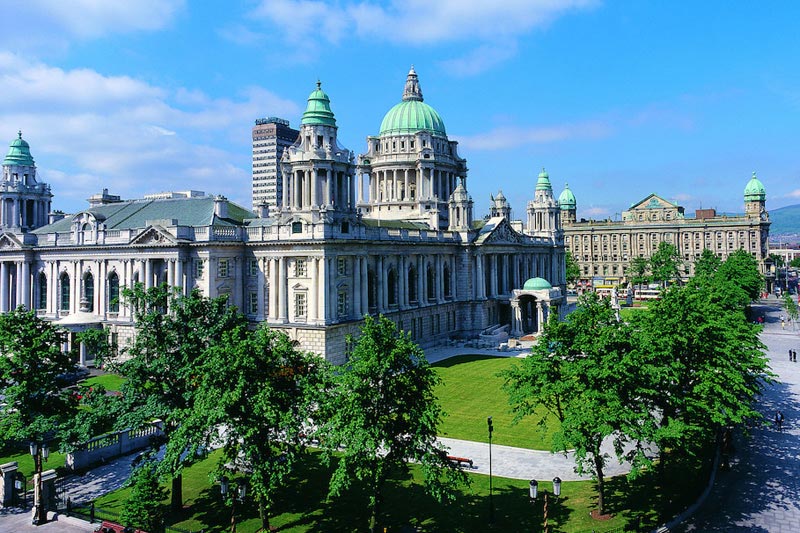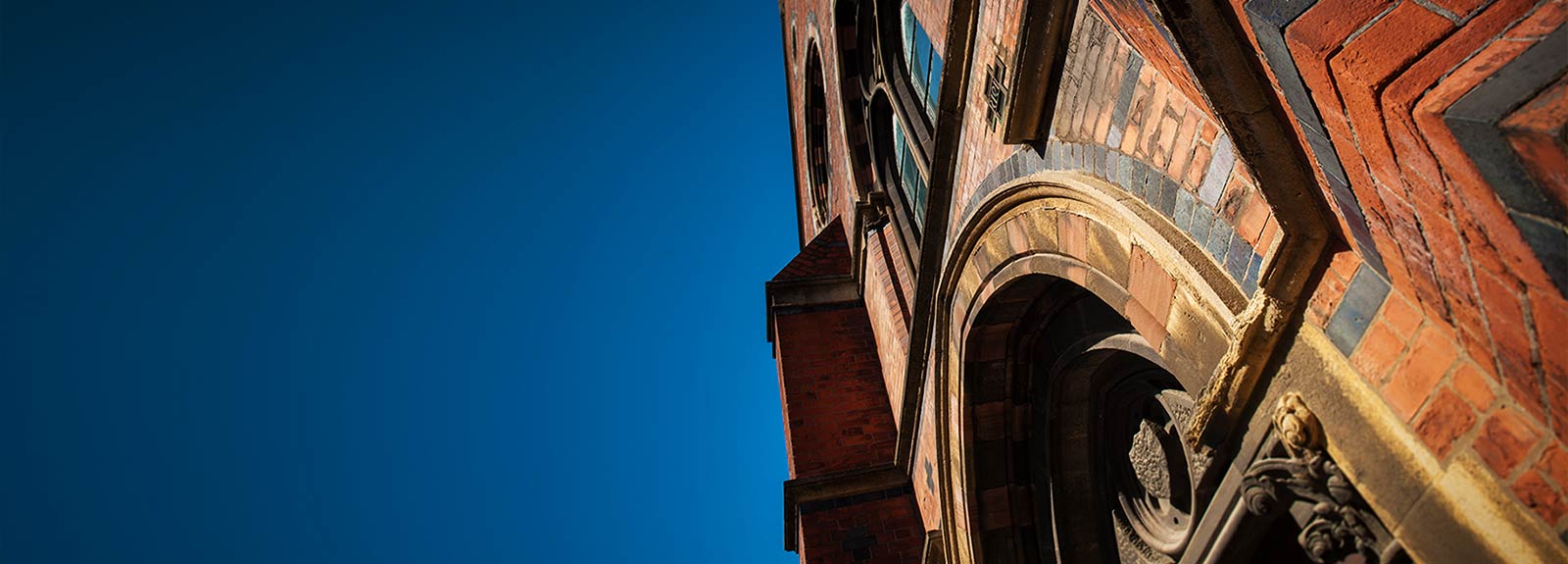WHAI Conference
We look forward to welcoming the WHAI Conference to QUB in April 2024! This year's theme is ‘Irish women and relationships from medieval to modern history’.
The Graduate School, Queen’s University Belfast
PROGRAMME OF EVENTS
-
Friday 26 April
Time Event Speakers 10:30-12:00pm Canada Room & Council Chamber
-
Leanne Calvert (University of Hertfordshire) on module preparation, in conversation with Sorcha Clarke (Ulster University)
-
Marie Coleman (Queen’s University Belfast) on viva preparation, in conversation with Sophia Traxler (Queen’s University Belfast)
-
Frances Nolan (University College Dublin) on funding applications, in conversation with Katherine Ingram (Queen’s University Belfast)
12:00-12:45pm Networking Lunch Sponsored by Northern Bridge
Council Chamber
12:45-2:00pm Welcome Address and Keynote
Canada Room & Council Chamber
- Diane Urquhart (President of the Women’s History Association of Ireland; Queen’s University Belfast), and Karen McCloskey (Queen’s Gender Initiative, Queen’s University Belfast)
- Frances Nolan (University College Dublin), ‘Law versus practice: women's property ownership in early modern Ireland’, chaired by James Davis (Head of School of History, Anthropology, Philosophy and Politics, Queen’s University Belfast)
2:00-3:30pm Panel 1: Women's Bodies
Grad School/TR6
Chair: Leanne McCormick (Ulster University)
- Leanne Calvert (University of Hertfordshire), ‘“he said [it] was safe … & afterwards he would marry her”: responding to pregnancy in eighteenth-century Ireland’
- Judy Bolger (Carlow College), ‘Pauper mothers and their relationships in late nineteenth-century Ireland’
- Sophia Traxler (Queen’s University Belfast), ‘Women's bodies and veteran privilege: female veterans and the Army Pensions Act in the Irish Free State, 1932-1943’
2:00-3:30pm Panel 2: Emigrants and Emigration
Grad School/TR7
Chair: Sophie Cooper (Queen’s University Belfast)
- Kristina Decker (University College Cork), ‘“Do not say I am ‘lost to you’ – I cannot bear that expression”: Mary Delany’s relationships across the Irish sea’
- Hayley Brabazon (Dublin City University), ‘Intersecting national identity and transnational existence: emigrant republican women and their relationship with the Irish Free State’
- Hannah Kempel (University College Dublin), ‘Nonconflicting interests: multilayered relationships between mental health care, gender, and the Irish migrant community in England’
3:30-3:45pm Break
Grad School
3:45-5:30pm Panel 3: Activists
Grad School/TR6
Chair: Jennifer Redmond (Maynooth University)
- Michelle McKeown (Ulster University) and Sergey Konaev (independent researcher), ‘Descended from the pages: iconic Irish women of the female activists’ tableaux vivants and the visual sources that informed them, 1890s–1920s’
- Erin Geraghty (University of Nottingham), ‘“English interference in Irish affairs has so often led to disaster”: conflict and collaboration between English and Irish suffragists in Ireland, 1900-14’
- Katherine Ingram (Queen’s University Belfast), ‘“Any shaft aimed at the party … must wound Ireland”: the Irish Women’s Franchise League and the Irish Parliamentary Party’
- Elizabeth Kyte (University College Cork), ‘Race relations and radical women: decolonising Irish feminist histories'
3:45-5:30pm Panel 4: Biographies
Grad School/TR7
Chair: Deborah Wilson
- Melissa Shiels (University College Cork), ‘The fair Geraldine and the Tudor court: proximity, protection, and presents’
- Niamh Reilly (University of Galway), ‘A tale of two land war memoirs: Anna Parnell's relationships with the Land League and its leaders’
- Elizabeth Kirkland (Dawson College), ‘Webs of relationships: the public/private life of Charlotte Smithers Learmont, 1845-1934'
-
- Saturday 27 April
Time Event Speakers 9:30-11:00am Panel 5: Sport, Leisure, and Competition
Grad School/TR6
Chair: Rachel Newell (Queen’s University Belfast)
- Hayley Kilgallon (University College Dublin), ‘Accommodation to integration: women and Gaelic games’
- Leanne Blaney (independent researcher), ‘Camogie: a women’s game’
- Lucy Wray (University of Bristol), ‘Dairy girls: milk, femininity and the Ulster Dairy Queen, 1957-80'
9:30-11:00am Panel 6: Spaces
Grad School/TR7
Chair: Bernadette Whelen (University of Limerick)
- Laura Fitzachary (independent researcher), ‘The Irish woman and her toilette: an exploration of the relationship between women and their dressing rooms in the 18th century’
- Ciarán McCabe (Queen’s University Belfast), ‘Women and domestic space in Dublin’s tenements’
- Miren Mohrenweiser (Queen’s University Belfast), ‘Prison visits as a site of confrontation during the Northern Ireland prison crisis, 1976-81'
11:00-11:15am Break
Canada Room & Council Chamber
11:15-12:15pm Keynote
Canada Room & Council Chamber
-
Ciara Meehan (University of Galway), ‘Redefining relationships? Insights from 1960s Irish women’s magazines’
- Chaired by Diane Urquhart (Queen’s University Belfast)
12:15-1:00pm Lunch
Canada Room & Council Chamber
1:00-2:30pm Panel 7: Women's Networks
Grad School/TR6
Chair: Andrew Himmelberg (Queen’s University Belfast)
- Rachel Newell (Queen’s University Belfast), ‘“It is well they have not got machine guns”: female criminality and the neighbourhood in Belfast, 1890s-1920s’
- Margaret Ward (Queen’s University Belfast), ‘Spinster sisters and the Military Services Pensions Board: case studies from County Antrim’
1:00-2:30pm Panel 8: Religion
Grad School/TR7
Chair: Marie Coleman (Queen's University Belfast)
- Emma Pietroletti (Roma Tre University), ‘Confined bodies: Irish clergymen in Rome and the doctrinal foundations of the Magdalene Laundries’
- Geraldine Noonan (University College Dublin), ‘Irish women religious and the church in the nineteenth century: “Your most humble and obedient daughter…”’
- Martin Walsh (University of Limerick), ‘“All those who join the Society must have borne a virtuous character”: the difficulties for the Irish Girls’ Friendly Society in navigating an increasingly modern world in the early years of the Irish Free State’
2:30-2:45pm Break
Grad School
2:45-4:15pm Panel 9: Love
Grad School/TR6
Chair: Elaine Farrell (Queen’s University Belfast)
- Deborah Wilson (Queen’s University Belfast), ‘The older woman in love: family, reputation and power in the case of Helen, Lady Dufferin and George Hay, Earl of Gifford’
- Clodagh Tait (Mary Immaculate College), ‘Passion and poison: love magic and love potions in Ireland, c.1820-1940’
- Shannon Devlin (Ulster University), ‘“Perhaps it is distasteful now”: cousin relationships as spaces of romantic experimentation’
2:45-4:15pm Panel 10: Women and Work
Grad School/TR7
Chair: Myrtle Hill (Queen’s University Belfast)
- Suzanne Jobling (Queen’s University Belfast), ‘“The work does not require a high degree of skill”: the reality of employer-employee relationships in the 1970s and 1980s as demonstrated in equal pay disputes’
- Susan Martin (independent researcher), ‘“civic evil”: Dublin’s women street traders confront power and privilege, 1923-32’
- Olivia Frehill (Trinity College Dublin), ‘Women, the family and employment in Dublin, c.1890-1930s’
The conference organisers are grateful for financial and other support from the School of History, Anthropology, Philosophy and Politics at Queen’s University Belfast; the Queen’s University Belfast Graduate School; the Queen’s Gender Initiative; the Queen’s University Belfast Agility Fund; the Northern Bridge Consortium; and the Women’s History Association of Ireland.

As Belfast flourishes as a global food, culture, arts and shopping destination, Queen’s is at the social and cultural heart of the city.
Getting to BelfastPlease see below hotels that are in close proximity to Queen's University Belfast.

